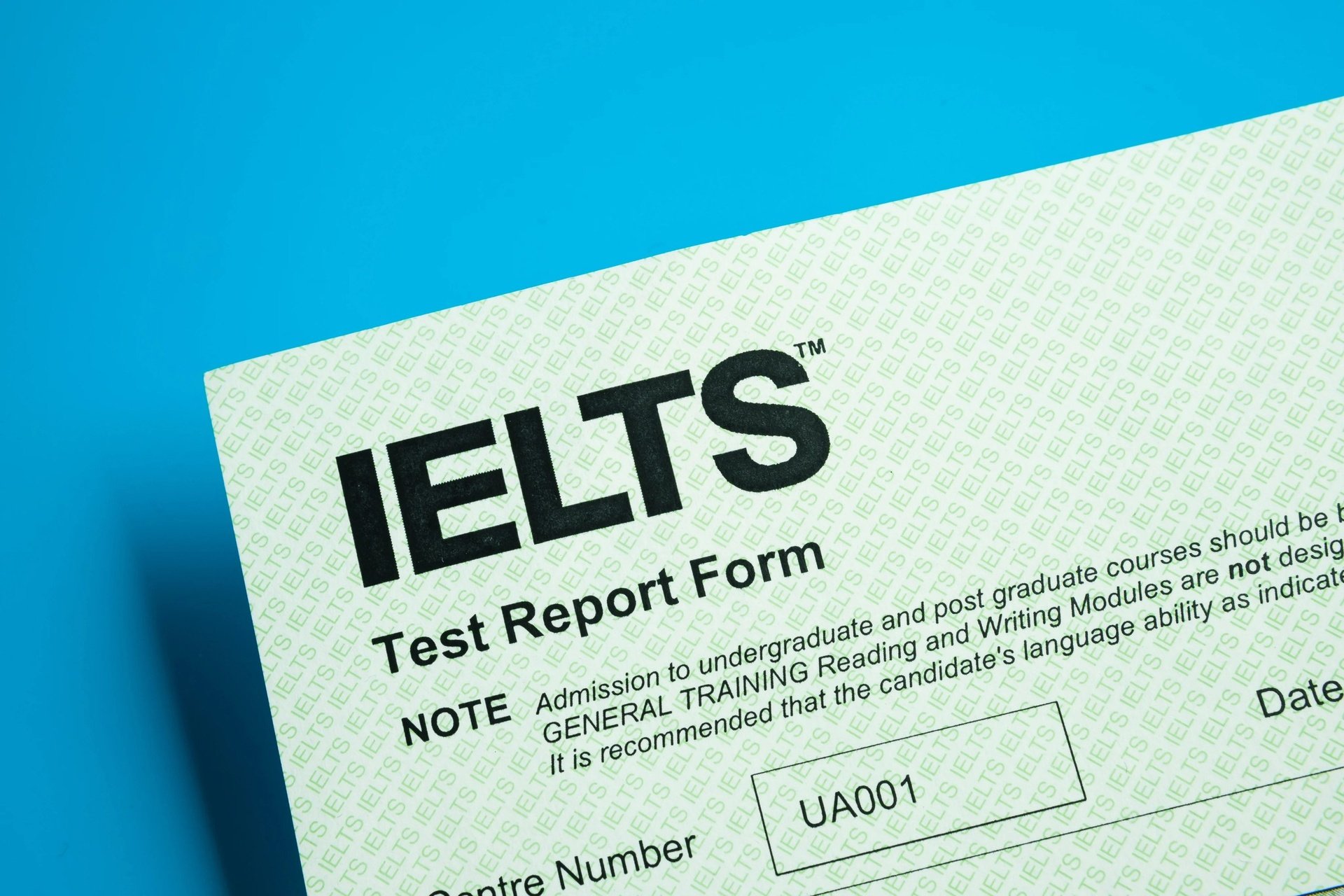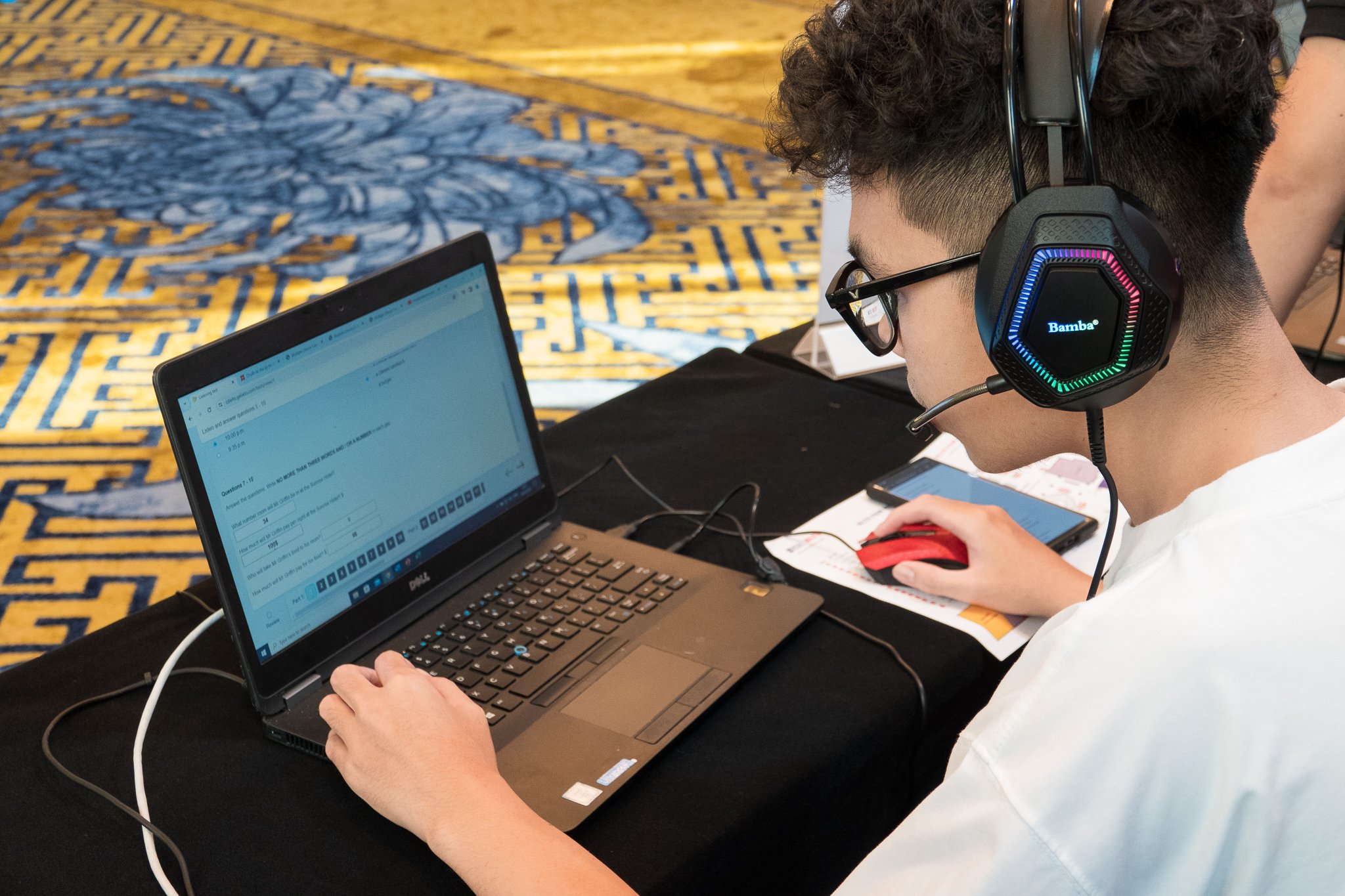
According to experts, there are many reasons why candidates' IELTS listening and speaking scores have slightly decreased compared to the previous statistics.
According to the statistics of IELTS Academic test scores of Vietnamese people in 2023-2024, listening and speaking skills decreased slightly by 0.1 points compared to the previous statistics in 2022, lower than the world average. In addition, the average IELTS score of candidates in Vietnam also witnessed more and more low scores (4.0-5.5, up 5%), and fewer and fewer high scores (6.0-7.5, down 4%). What is the cause of this decline?
School is one of the reasons?
Currently a PhD student in education at the University of Reading (UK), Ms. Ha Dang Nhu Quynh, Academic Director of DOL English, believes that one of the main reasons for the decline in IELTS listening and speaking scores is that the way English is taught in high schools often focuses on reading and writing on paper instead of practicing listening and speaking. This stems from the fact that the test requirements as well as the facilities and teachers' capacity cannot meet the requirements.
"Listening and speaking are two skills that are very difficult to teach well because they are instantaneous and more reflexive. The lack of a suitable method to help students improve these two skills is also a big problem. In addition, students often do not clearly understand the difference between listening and speaking and reading and writing, leading to applying what they have learned in reading and writing to listening and speaking, such as using academic words when speaking, making communication unnatural," Ms. Quynh analyzed.
Agreeing, Mr. Dinh Quang Tung, Academic Director of YSchool, said that the current curriculum still limits listening and speaking practice, especially for students from the provinces. This makes students able to read and write at a good level but have difficulty listening and speaking due to lack of practice environment. From the perspective of adults, the above two skills are even more difficult to improve because the ability to recognize phonemes in adults is almost formed.
"Another reason could be due to the study habits of some candidates, especially memorizing the speaking test. Like the day before the exam, I saw some candidates holding paper or phones to memorize sample answers. This only helps them achieve a maximum of 5.5-6.0 IELTS," Mr. Tung stated his opinion.
Mr. Tung added that the data from the IELTS organization currently lacks some important information. First, they do not have statistics by age of candidates. It is possible that the age difference between 2022 and 2023-2024 also affects the scores. Second, the denominator in the above statistics also needs to be clarified. Is this the percentage of candidates achieving a certain score or the percentage of exams achieving that score, because a candidate can take many exams.
The above information, if clarified, will make data analysis on candidate characteristics easier and more accurate.

According to experts, the new data published by IELTS is not detailed and clear.
According to Mr. Tung, in the recent exam, the male teacher noticed that the listening test had some vocabulary that would cause difficulties for some candidates, such as the phrase "prickly plants" or "resentment" (an unpleasant feeling when being forced to do something). This test also had some questions that required candidates to really understand what the character was saying, not just using tricks to do it.
Ms. Phan Thi Song Suong, a master's degree holder in English teaching at Nottingham Trent University (UK), founder of Home English Center, also commented that students' IELTS speaking scores recently have been "unusually low", especially for those taking the test on computers. Ms. Suong said that these candidates have a good foundation, achieving a reading score of 7.5 but only a listening score of 6.0, although normally the reading and listening test results should be equal.
"Referring to the sample test in the latest version of Cambridge English IELTS book, I found that although the content of the questions is a bit more difficult, they are not too challenging for learners, especially when many of them have learned English since childhood," the female master's student commented.
Effective IELTS preparation tips
According to Ms. Nhu Quynh, to truly develop English proficiency, teachers must have methods to help students comprehensively develop all four skills of listening, speaking, reading, and writing, not just one skill. However, learning all four skills does not mean learning them all the same, but it is necessary to clearly understand the differences in nature, then have a learning mindset appropriate to each skill, the female expert noted.
According to Ms. Quynh, one of the "assistants" that students should look to is technology, especially in passive skills such as reading and listening, which require a lot of practice to improve. Technology in this case will help build a repository of exercises and tests with answers and detailed explanations like a teacher. With active skills such as speaking and writing, students can rely on artificial intelligence to continuously grade and correct their work.
Sharing about the IELTS test time, Ms. Quynh commented that there is no specific number that is suitable for everyone. Because, in addition to testing the language, IELTS also requires a certain amount of social knowledge, so you should only take the test when you have enough experience.
"The earliest age should be at the end of junior high school or the beginning of high school. However, regardless of age, students should not consider IELTS as the ultimate goal, but should focus on building the right mindset for learning English. When good at English and having the right mindset, students will be able to conquer any English test easily," the doctoral student shared.

Candidates take a practice listening test at the IELTS festival held in March.
Ms. Song Suong noted that the IELTS review time depends on the current level as well as the candidate's goals. Therefore, you must first determine your ability, then choose to study with guidance from books or teachers. Based on research, on average, each person needs about 100 hours of guided study to increase 0.5 IELTS. This time will vary based on other factors such as age, aptitude and the difference between the mother tongue and English.
IELTS (International English Language Testing System) is an international English language testing system widely recognized by thousands of universities, governments and businesses worldwide. The exam was launched in 1989 and is currently jointly owned by IDP, the British Council and Cambridge University Press and Examinations (UK). According to statistics from the exam organizers, every year there are over 2 million candidates taking the IELTS exam worldwide.
Currently, IELTS is accepted by more than 100 higher education institutions in Vietnam to convert test results into English scores for admission purposes. The Ministry of Education and Training also allows candidates with IELTS scores of 4.0 or higher to be exempted from the foreign language high school graduation exam. In 2022, both IDP and the British Council in Vietnam issued 124,567 IELTS certificates.
Source: https://thanhnien.vn/diem-ielts-cua-nguoi-viet-giam-la-do-de-thi-kho-hon-185241016154421053.htm




![[Photo] General Secretary To Lam attends the 95th Anniversary of the Party Central Office's Traditional Day](https://vphoto.vietnam.vn/thumb/1200x675/vietnam/resource/IMAGE/2025/10/18/1760784671836_a1-bnd-4476-1940-jpg.webp)
![[Photo] Collecting waste, sowing green seeds](https://vphoto.vietnam.vn/thumb/1200x675/vietnam/resource/IMAGE/2025/10/18/1760786475497_ndo_br_1-jpg.webp)
![[Photo] Closing ceremony of the 18th Congress of Hanoi Party Committee](https://vphoto.vietnam.vn/thumb/1200x675/vietnam/resource/IMAGE/2025/10/17/1760704850107_ndo_br_1-jpg.webp)





































































































Comment (0)